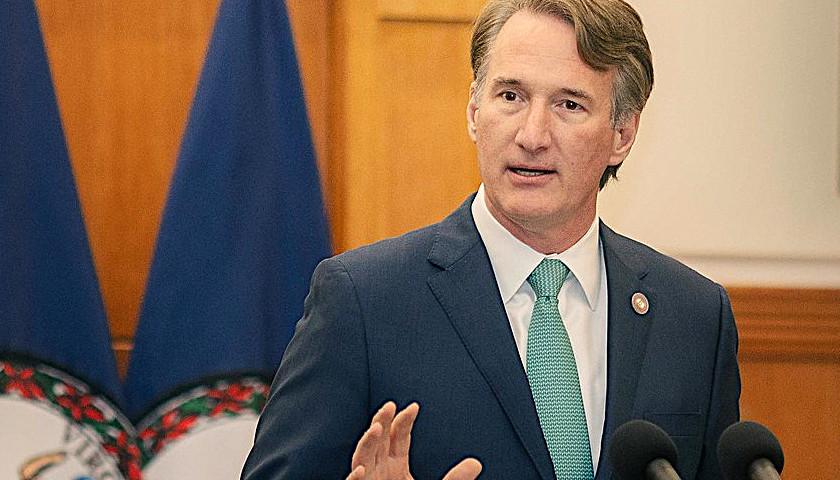by Madison Hirneise
A committee of Virginia lawmakers advanced a bill Friday that seeks to establish a retail market for sales of recreational marijuana beginning next year – a measure lawmakers are mulling almost two years after the state legalized the substance.
The State Senate Rehabilitation and Social Services committee voted 9-6 to advance a bill by State Sen. Adam Ebbin, D-Arlington. The legislation specifies that retail sales of marijuana would be subject to a 21 percent tax with the option for localities to levy an additional 3 percent tax.
Virginia legalized marijuana July 1, 2021, allowing adults age 21 and older to possess up to 1 ounce. The state did not establish a framework for retail sales, meaning the only way to get marijuana for recreational use is to grow or receive it as a gift.
Ebbin’s bill was met with pushback from opponents in a Senate subcommittee earlier this week, who voiced concern for small businesses. If enacted, a “transitional sales” market would be created, allowing certain pharmaceutical processors who already sell medical cannabis to add sales of marijuana for recreational use to anyone age 21 or older starting Jan. 1 – six months before the full licensing for other small businesses would begin.
The framework did not sit well with advocates, who argued it would reduce opportunities for Black communities – who were heavily impacted by marijuana prohibition – to participate in the cannabis market. Others argued the bill would benefit larger corporations over small businesses.
“This bill should be called the ‘medical cannabis full benefit act’ because the only people that are going to benefit from this right now [are] the big companies,” Phillip Thompson, a cannabis equity consultant, said at Wednesday’s subcommittee hearing. “If you let them go out and sell, they’re going to control the market.”
In response to concerns from groups in opposition, Ebbin amended his bill to require pharmaceutical processors to franchise five applicants who live in “historically economically disadvantaged communities” to be able to enter the market on Jan. 1. The franchisees would receive training and business support from the pharmaceutical processor, and both the pharmaceutical processors and their franchisees could start selling recreational cannabis on Jan. 1.
Ebbin said that under this amendment, up to 20 businesses from “communities most impacted by cannabis prohibition and disparate policing will be some of the first to enter the market.”
Chelsea Higgs Wise, executive director of Marijuana Justice, told The Center Square on Friday that she sees the franchisee amendment as a “compromise.” She said her organization “still stands by the fact that we do not need to include the pharmaceutical companies in early sales or in adult-use sales at all.” In an interview earlier this week, Wise pointed to New York’s framework for recreational marijuana sales, noting that the state’s first licensed dispensary was a nonprofit.
Ebbin’s bill was also amended to include provisions related to the resentencing and release of those currently incarcerated for cannabis possession, and to alter the definition of “historically economically disadvantaged communities” to focus more narrowly on communities “most impacted by disparate enforcement in the war on drugs.”
Lawmakers on the Senate Committee voted along party lines to advance the measure. Some voiced concern about certain provisions in the bill, noting they would prefer to see more “micro-businesses” included in early sales.
“I still have somewhat of the same concern in terms of establishing market dominance very early in the process that will disadvantage others as they try to start up later in the market timing,” State Sen. Jeremy McPike, D-Prince William, said Friday.
The bill is slated to receive another hearing in the Senate Finance Committee in the coming weeks. If the bill passes out of the Senate, it could face challenges in the Republican-majority House of Delegates; it did not receive support from any Democrats during Friday’s Senate committee.
Beyond the General Assembly, the bill could potentially hit a final roadblock.
Republican Gov. Glenn Youngkin told reporters this week he is more focused on bills dealing with regulations for hemp and Delta-8 THC – a compound in the cannabis plant that has intoxicating effects. Youngkin dodged questions earlier this week about whether he would sign legislation to pave the way for legal marijuana sales, as reported by WRIC.
In other committee action on Friday, lawmakers advanced a bill setting regulations for inhalable hemp products, including batch testing and labeling requirements. Lawmakers also voted to advance a bill that includes certain labeling and packaging requirements for regulated hemp products, outlining that a regulated hemp product must be sold in “child-resistant packaging” and the product label must state the total percentage of THC in the product.
– – –
Madison Hirneisen is a staff reporter covering Virginia and Maryland for The Center Square. Madison previously covered California for The Center Square out of Los Angeles, but recently relocated to the DC area.
Photo “Adam Ebbin” by Friends of Guest House. Background Photo “Marijuana Dispensary” by Rick Obst. CC BY 2.0.





